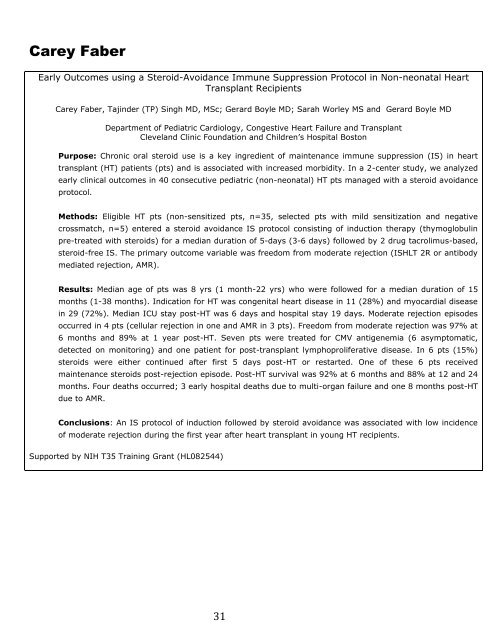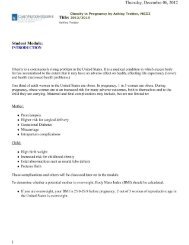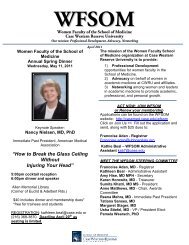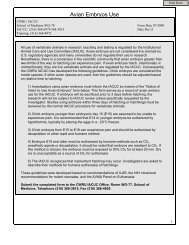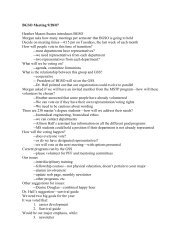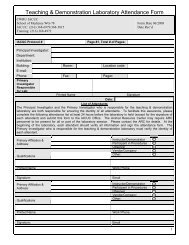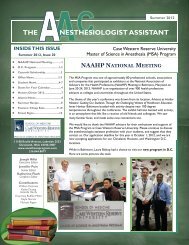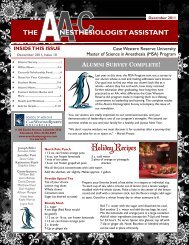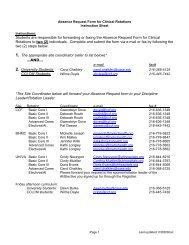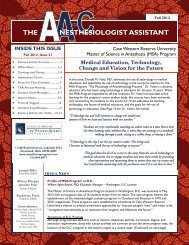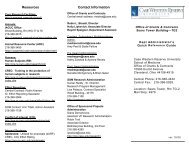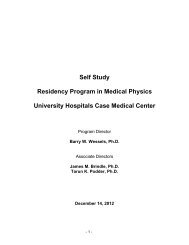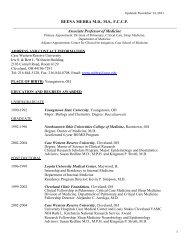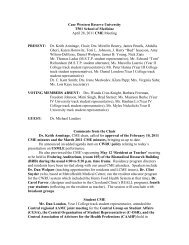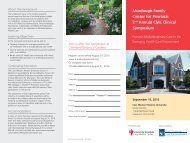student research day - Case Western Reserve University School of ...
student research day - Case Western Reserve University School of ...
student research day - Case Western Reserve University School of ...
Create successful ePaper yourself
Turn your PDF publications into a flip-book with our unique Google optimized e-Paper software.
Carey Faber<br />
Early Outcomes using a Steroid-Avoidance Immune Suppression Protocol in Non-neonatal Heart<br />
Transplant Recipients<br />
Carey Faber, Tajinder (TP) Singh MD, MSc; Gerard Boyle MD; Sarah Worley MS and Gerard Boyle MD<br />
Department <strong>of</strong> Pediatric Cardiology, Congestive Heart Failure and Transplant<br />
Cleveland Clinic Foundation and Children’s Hospital Boston<br />
Purpose: Chronic oral steroid use is a key ingredient <strong>of</strong> maintenance immune suppression (IS) in heart<br />
transplant (HT) patients (pts) and is associated with increased morbidity. In a 2-center study, we analyzed<br />
early clinical outcomes in 40 consecutive pediatric (non-neonatal) HT pts managed with a steroid avoidance<br />
protocol.<br />
Methods: Eligible HT pts (non-sensitized pts, n=35, selected pts with mild sensitization and negative<br />
crossmatch, n=5) entered a steroid avoidance IS protocol consisting <strong>of</strong> induction therapy (thymoglobulin<br />
pre-treated with steroids) for a median duration <strong>of</strong> 5-<strong>day</strong>s (3-6 <strong>day</strong>s) followed by 2 drug tacrolimus-based,<br />
steroid-free IS. The primary outcome variable was freedom from moderate rejection (ISHLT 2R or antibody<br />
mediated rejection, AMR).<br />
Results: Median age <strong>of</strong> pts was 8 yrs (1 month-22 yrs) who were followed for a median duration <strong>of</strong> 15<br />
months (1-38 months). Indication for HT was congenital heart disease in 11 (28%) and myocardial disease<br />
in 29 (72%). Median ICU stay post-HT was 6 <strong>day</strong>s and hospital stay 19 <strong>day</strong>s. Moderate rejection episodes<br />
occurred in 4 pts (cellular rejection in one and AMR in 3 pts). Freedom from moderate rejection was 97% at<br />
6 months and 89% at 1 year post-HT. Seven pts were treated for CMV antigenemia (6 asymptomatic,<br />
detected on monitoring) and one patient for post-transplant lymphoproliferative disease. In 6 pts (15%)<br />
steroids were either continued after first 5 <strong>day</strong>s post-HT or restarted. One <strong>of</strong> these 6 pts received<br />
maintenance steroids post-rejection episode. Post-HT survival was 92% at 6 months and 88% at 12 and 24<br />
months. Four deaths occurred; 3 early hospital deaths due to multi-organ failure and one 8 months post-HT<br />
due to AMR.<br />
Conclusions: An IS protocol <strong>of</strong> induction followed by steroid avoidance was associated with low incidence<br />
<strong>of</strong> moderate rejection during the first year after heart transplant in young HT recipients.<br />
Supported by NIH T35 Training Grant (HL082544)<br />
31


